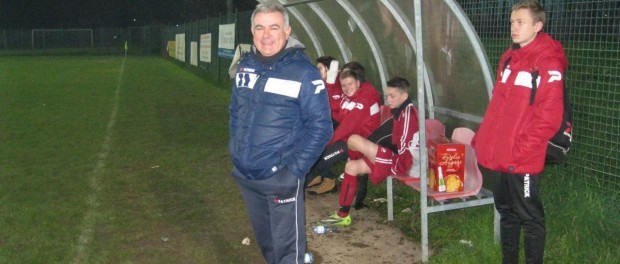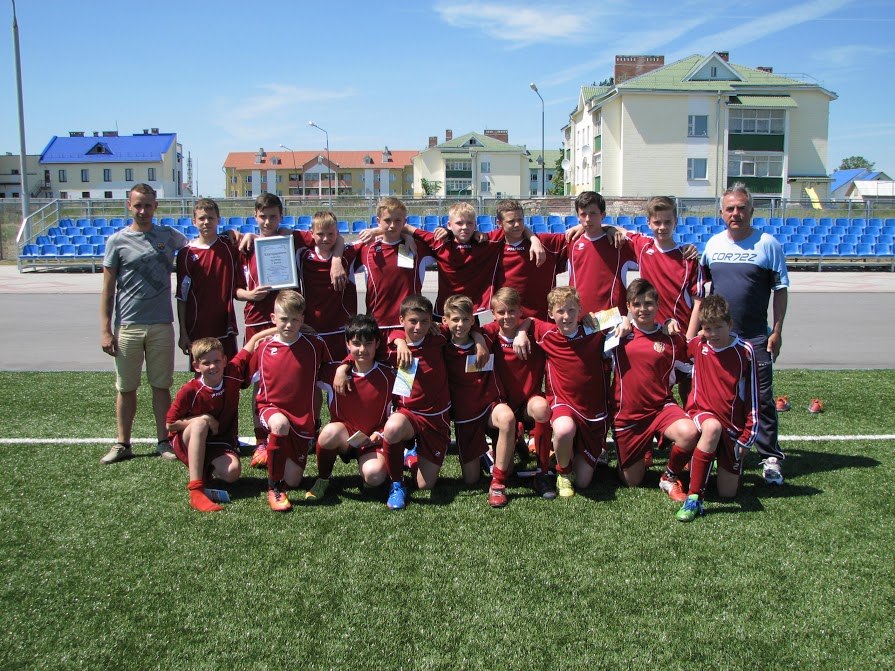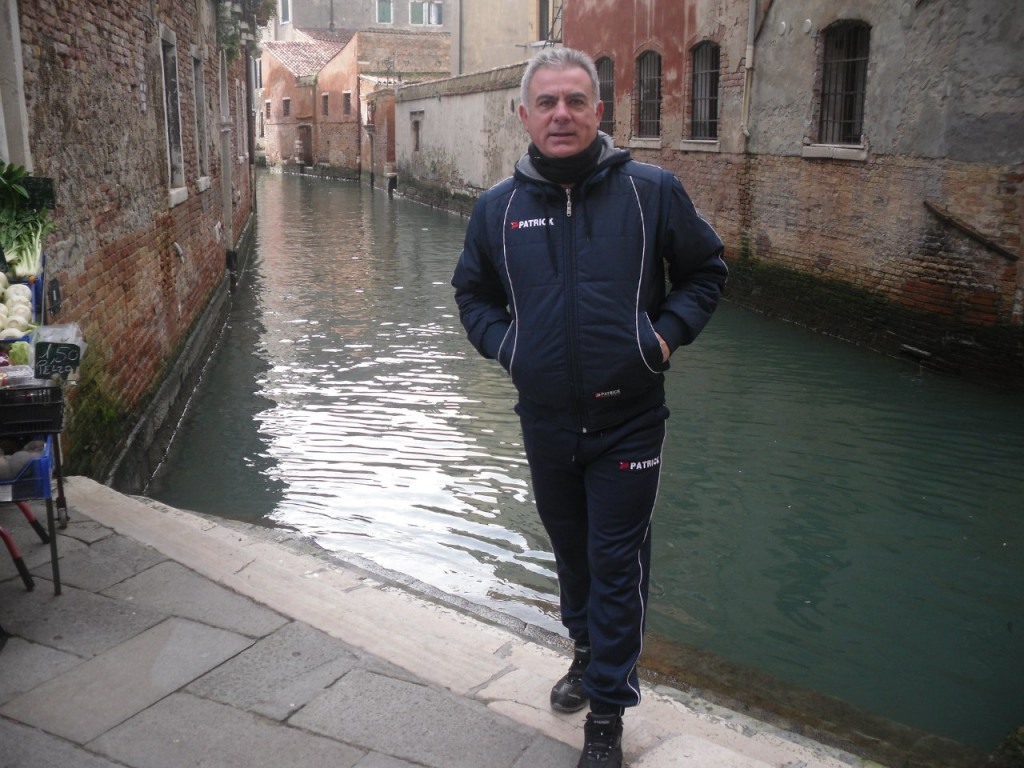Rocco Fiammella: I’m happy with what I’m doing.

Rocco Fiammella is a football coach. He came to Belarus several years ago and wanted to open a football school for children. At the time, he received an offer to work for Dinamo Minsk football school and accepted it. Now Mr. Fiammella works in another football school called Patrick. He tells us in this interview about his moving to work in Belarus, Dinamo, Patrick, problems and achievements of Belarusian football and other things.
– First of all could you please tell a couple of words about yourself? Where were you born?
– I was born in the south of Italy. I lived, went to school, worked and played football there. Now I’ve been in football for 35 years. But in the beginning I played in Serie D. I have been doing that for a lot of years. After I stopped playing football I started coachingh youth teams. I have been studying for 3 years to get this qualification. Now I have the UEFA ‘B’ license. I also finished courses in psychology and medicine. Well, I can’t say my knowledge in these spheres is very good but, still, I have to know some general things. It is very important, because, when something happens on the field and there is no doctor nearby, you should do everything yourself. Quick and competent reaction in such situations is of high importance. Well, as I’ve already said I worked in Italy as a youth coach for many years. Later I opened a football school. Then another one. Then I moved to Belarus. Here I wanted to open another football school but changed my mind. The thing is, that Sergei Gurenko, who at that time was the Director of Sports in Dinamo Minsk, offered me to work in the club. My Russian was not very good then. I wanted to understand local mentality better too. So I decided to accept thas offer. I’ve worked for a year in Dinamo. I coached a team, in which players born in 1999, were playing. Everything was OK. At least I think so. Probably you should ask the Director, parents and children about that. But I think my work was quite good.
– As far as I remember you left the club when Yury Shukanov occupied the position of the Director of Sports in Dinamo…
– Yes. I was invited by Sergei Gurenko. But then Shukanov came to the club. And we didn’t come to an agreement.
– Well, not many people come to an agreement with him.
– (laughing) Probably you know what I’m talking about. He had a vision… A strange vision. But I don’t want to talk about that. I’ve already said a lot about that.
– I see. When you left Dinamo why didn’t you open the school you wanted to open before that?
– I thought about that. But then I got acquainted with the Director of a private football school called “Patrick“. His name is Igor Timofeev. He told me about his plans and I thought that we could work together. When I started working there were only groups with children 7-10 years old. It’s just the same as if I had opened my own football school. There were only 10 children. Now there are about 100. So I have about 3 or 4 groups now. The only thing is that now in our school there are children who practically haven’t played football before that. And it is difficult to work with them. They don’t have the needed skills. Still I’m happy about what I’m doing. I’ve always worked with youth teams. I like that. And I’m not going to give this up.
– Is football the only reason why You’ve come to Belarus?
– Well, I’ve been in football for a long time. 3 years ago I was offered to work here. But I had my own reasons to come here too. I have a girlfriend here. She is from Belarus. We have a child. So I’m glad to live here.
– Before your arrival to Belarus what did you know about our country? About football in Belarus?
– When you love football you are aware of what’s going on in the world in this sphere. Speaking aboutAs far as the Belarusian football is concerned, I knew BATE and Dinamo. In Italy many people are know Dinamo. Famous Belarusian footballer Sergei Aleinikov played in Juventus. Moreover, Dinamo is a club with long history. Moreover, I knew that good coaches were needed here, as well as the systematization of the process. I’d like to say that there are qualified specialists in Belarus. There are good coaches here. But there is no system. Everyone knows theory. But practice… Practice means system. It’s a pity because I see that there are football-players with potential and we can work with them.
– As far as the system is concerned, Fabio Capello has recently said that youth coaches that are teaching tactic instead of technique should be sentenced to prison. Sure it’s a joke, but do you agree that the approach should be different?
– Fabio Capello is a fantastic coach. I can’t say that he is wrong because he knows football better than me. That’s for sure. Technique and tactics are very important. But there are other components to work on too. Players need speed, coordination. Coordination is of high importance. The same thing is about psychology. So there should be a complex of components to work on. When the coaches’ve been gathered in Dinamo I saw that there are specialists there. They know the theoretical aspect. But when it comes to the pitch I don’t see anything there. When a child starts to play football there should be one system with certain priorities. When they are 10 or 11-year-olds there should be other priorities. That’s the methodology.
– When one of my relatives was studying to become a footballcoach his teacher said once that this profession is similar to the profession of a doctor. The only difference is that doctors treat ill people and youth coaches can make healthy people ill. Do you agree with that?
– Absolutely.
– Patrick is a private school. Is there any difference between private schools and governmental?
– No. The main goal of every football school is to prepare children. Sure abilities are different. We can’t act as a big club. But if a sponsor appears then we’ll see. So when a child trains for several years and shows good results he can try his hand in a professional club. That is out most important goal at the moment. The second reason is that we give a chance to play football to those who weren’t taken to other football schools. There is a selection in professional clubs. If they see that a child is not good enough they don’t take him. We give these children an opportunity to play football and, probably, after several years of training, they will be able to become professional footballplayers.
– As far as I know Patrick and FC Minsk have signed a cooperation agreement not long ago. Does it stimulate children to work harder in order to become FC Minsk player in future?
– The agreement was signed about a year ago. But now there is no cooperation. It’s not a big problem because if a child is well prepared he will have an opportunity to try his hand in professional football. Now in my group there are several children with good potential. So if they keep working the way they are doing it now there will be a chance for them.
– Should there be priorety for the result in youth football?
– No way. There are good examples that prove that. A team can win a tournament for instance in Belarus, in Vilnius or any other tournament but we don’t see these players on the professional level. We can win the tournaments, we can have the results. But what do we finally get? Nothing. You should train children, prepare them for the future. The result should go on the second place. Psychologists say the same. If you want to win, it is not important how your players play. It is important that you win 1-0 or 2-0. If a youth coach works in the following way it means that he does it for himself. So if you win a tournament you are a good coach. If you don’t win tournaments you are bad. I don’t agree with that. The result is good. Children are happy, they are full of enthusiasm. But we can’t prepare a good footballplayer if we think about the result only.
– Could you name 3 main problems and 3 good points of Belarusian football? At least a couple of them.
– First problem is psychology. Footballplayers are afraid of football. They don’t take initiative. I don’t know why. Probably they are afraid to make a mistake. The second one is that people don’t believe in themselves. And the third problem is that tactical and technical aspects of footballplayers aren’t good. This problem has its beginning in youth football. We’ve already discussed that. As far as the self-confidence is concerned, I should admitt/ that it’s not a problem of footballplayers only. I suppose that it’s a typical thing for people who live here. I don’t understand it when, for instance, there’s an issue to be fixed and you tell somebody that something needs to be done for that. But instead you are told something like “Rocco, what do you want? It’s Belarus.” People very often say something like that. What does it mean? “This is Belarus.” It is a country. People live here. I don’t see any huge difference between Belarus and Belgium or Slovakia. But still people say “Yes, this is a problem. But there’s no hope. This is Belarus.” So I suppose this mentality is reflected in sports, in football.
– When Robert Maaskant was Dinamo Minsk head coach he said once that people here are walking in the street with downcast eyes.
– Yes, people are always silent. I don’t know why.
– And what about good points?
– Hmmm… It’s difficult to say.
– This is also an answer.
– (laughing) Well, I suppose FC BATE. I like what they are doing. I really like that there is stability there. It means that the director, the head coach, has been working there for some time. So the head coach can plan his work. The same about the director. That’s why we see good results there. All clubs in the world in which the position of the head coach and director is stable show good results sooner or later. For instance, take Juventus under Antonio Conte. Or Milan under Carlo Ancelotti. There are many examples. So BATE is not an exception.
– Do you have any idols?
– Antonio Conte. That’s for sure. I like coaches with strong character, who are energetic. Probably it’s because I’m Italian, because of our energy. I like Conte’s mentality, the mentality of his teams. They have aggressive style.
Then the director of Patrick football school Ivan Timofeev joined our conversation.
I.T. – No provocative questions, just football (smiling).
– No worries, no questions about president or other politicians.
I.T. – Why? It’s a normal question.
R.F. – Sure. I like your president:)
– So does everybody.
R.F. – Really. I think that there should’ve been someone in Italy for about ten years as well(laughing).
– All right. Finally, have you tasted Belarusian cuisine?
R.F. – Well, I can’t say that I know Belarusian cuisine very well. But I really like your soups. They are tasty.
I.T. – Have you ever tasted pancakes made of potatoes? They are called draniki.
R.F. – Yes, it is fried. I like that.
– How do you find Minsk?
R.F. – Minsk is a beautiful city. It is also very clean. I really like that.
– Have you visited other Belarusian cities?
R.F. – I’ve been to Grodno and Brest. These cities are beautiful too.
– Your Russian (the interview was given in the Russian language) is quite good. And what about Belarusian?
R.F. – I don’t know a single word in Belarusian. If I knew that would be fantastic. I learned Russian and this language is pretty tough. I learned that and learned… And then gave it up (laughing).
– And the final question. Have you ever wanted to be a coach of a professional team?
R.F. – Well, I coached adult teams in Italy. They weren’t professionals. They were amateurs. I didn’t like that. The thing is that you can’t give much to an adult. He has no football prospects. My experience and my education help me to work with youth teams. And I’m happy about that.



Leave a comment